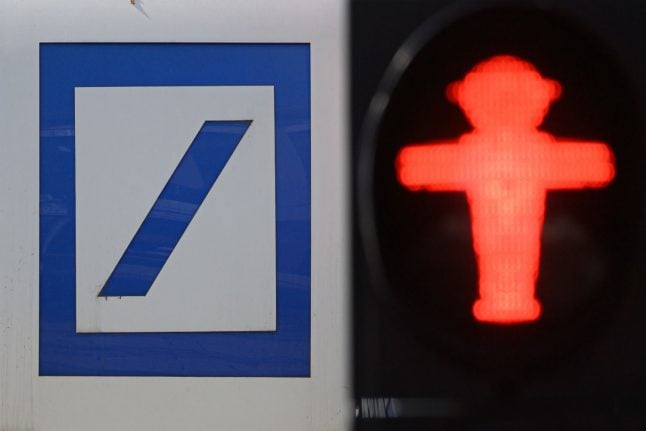Germany's largest bank plans to reduce its high-street footprint from 500 to 400 branches “as quickly as possible,” said Philipp Gossow, head of the private banking division.
“Customer demand for advice has increased significantly since the coronacrisis. But customers go to the branch less often for advice” as they become more comfortable with online tools, Gossow told a conference in Frankfurt.
READ ALSO: Deutsche Bank set to cut 9,000 jobs in Germany
The closures are to take place mainly in urban locations.
Related layoffs will be part of the 18,000 job cuts already announced in 2019, the bank said.
The move comes after German rival Commerzbank said it would slash its high-street presence and cut 10,000 jobs.
Deutsche has struggled in recent years amid a series of scandals, and is undergoing a restructuring that pivots operations away from investment banking.
Deutsche lost almost 10 percent of its stock market value Monday after media reports said it was allegedly involved in money laundering while its now-chief executive Christian Sewing was head of the audit division.
Deutsche posted a second-quarter net loss of €77 million on the back of risk provisions to bolster itself against the pandemic.
Covid-19 has prompted more card and online transactions in traditionally cash-loving Germany, partly because of a desire to avoid touching notes and coins.
Card payments will surpass cash transactions for the first time in the country this year, according to research at Euromonitor International, a trend that lessens the need for brick-and-mortar bank branches.



 Please whitelist us to continue reading.
Please whitelist us to continue reading.
Member comments